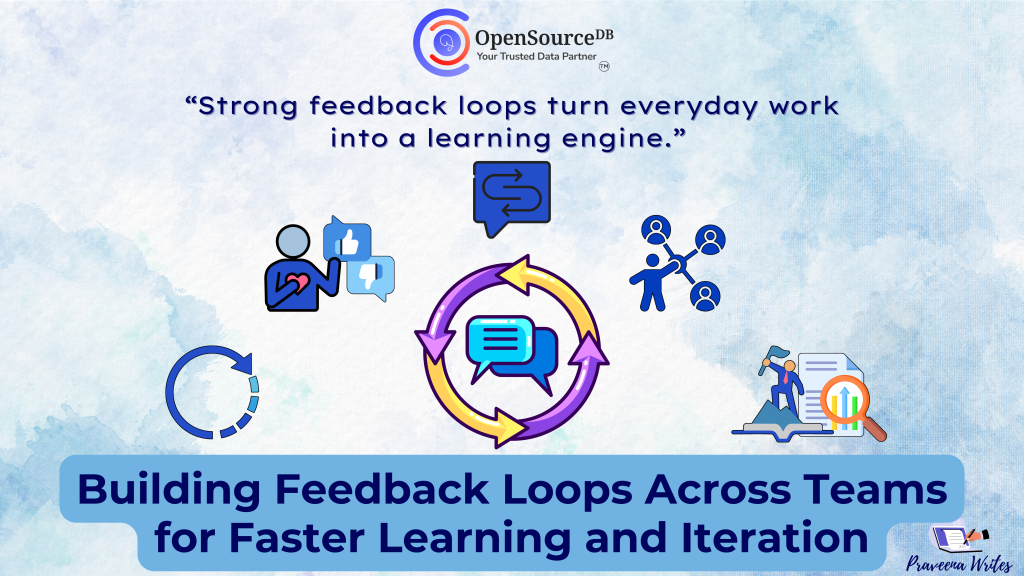
Week 4 – In fast-moving environments, speed alone isn’t enough—learning quickly and iterating effectively is what separates high-performing teams from the rest. The best way to achieve this? Strong feedback loops that connect people, processes, and outcomes across teams.
Why Feedback Loops Matter
A feedback loop is more than just asking for input—it’s about capturing signals, sharing insights, and acting on them quickly. When feedback loops are weak, teams work in silos, repeat mistakes, and slow down progress. Strong loops, on the other hand, help:
- Spot issues earlier and fix them before they grow.
- Share learnings across teams so everyone improves together.
- Build trust by showing that feedback leads to real change.
Building Effective Feedback Loops
Here are some practical ways to strengthen feedback loops in your organization:
1. Shorten the Cycle
Don’t wait until the end of a project or quarter to reflect. Run weekly or sprint-based check-ins that focus on what worked, what didn’t, and what to try next. The faster the loop, the quicker the learning.
2. Create Cross-Team Visibility
One team’s learning should be everyone’s gain. Use shared dashboards, retrospectives, or town halls to spread insights beyond immediate project groups. Transparency accelerates collective improvement.
3. Encourage Safe, Honest Feedback
People only share openly when they feel safe. Leaders must model vulnerability by welcoming constructive criticism and acting on it. Feedback ignored is feedback lost.
4. Balance Qualitative and Quantitative Signals
Metrics (like delivery speed, incident counts, customer satisfaction) are essential, but stories and context matter too. Combining data with human feedback creates a complete picture.
5. Close the Loop
Feedback is meaningless unless acted upon. Always communicate what was done with the feedback—even if the answer is “not now.” This builds trust and keeps people engaged in the process.
The Payoff
When teams establish tight feedback loops, they don’t just move faster—they learn faster. That means fewer repeated mistakes, stronger collaboration, and a culture where experimentation is embraced. Over time, this compounds into real competitive advantage.
Week 4 takeaway:
Strong feedback loops turn everyday work into a learning engine. The faster your teams can give, receive, and act on feedback, the faster your organization can adapt and grow.
